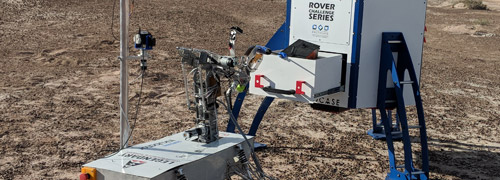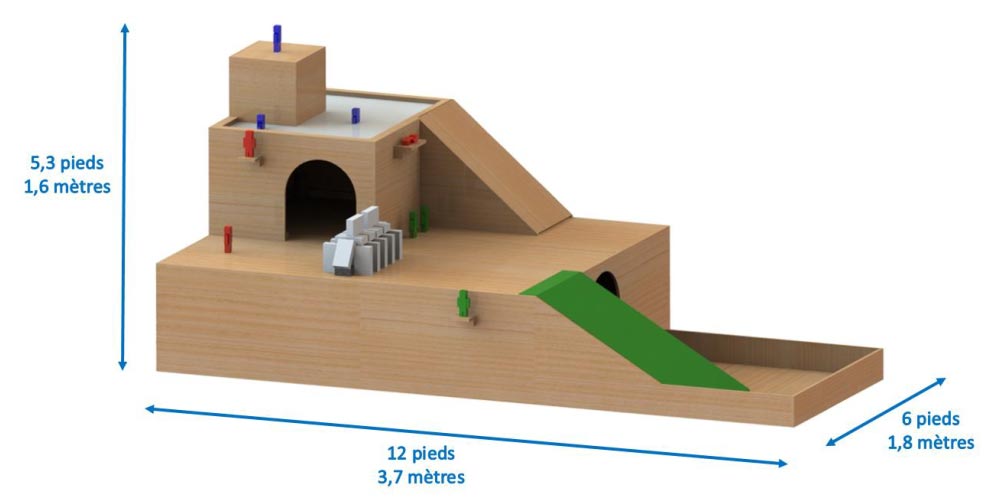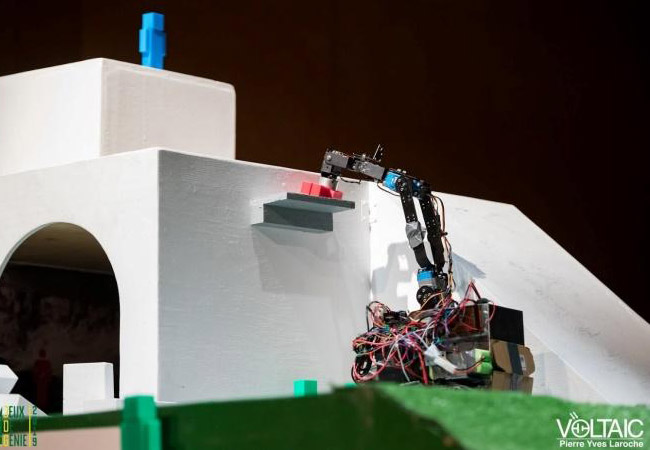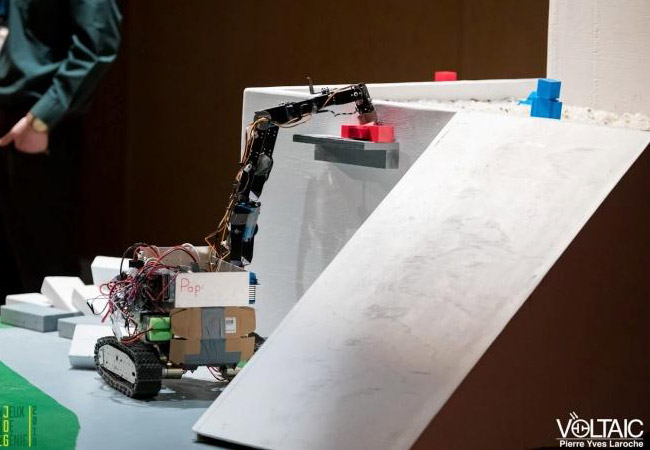Every year, all 11 Quebec universities with engineering programs (and one from Ontario) take part in The Engineering Games. While the friendly four-day competition is engineering-focused, the competition actually encompasses academic, practical, sporting and cultural events.
One significant portion of the competition is the Machine Design Challenge. At the start of the first semester, months before the Engineering Games take place, each team is presented with a challenge to which they must come up with a robotic solution to solve.
McGill University's Machine Team, a motivated group of six students, worked through their first term to get ready for the competition in January -- with the help of Protocase.
The 2019 Machine Design Challenge
The Machine Design Challenge for the 2019 Engineering Games tasked teams with developing a robotic solution to a particular environment that could complete a series of varying challenges.
The 2019 Challenge was very fast and contained multiple fields of challenges. There were two aspects, navigation & rescue of dummies across the course, and computer vision & QR code reading. The course was designed to mimic a mountainous region, as it was composed of ramps, plateaus and dark caves.
McGill Team's Goals
After reviewing the challenge directives -- particularly having to navigate steep mountainous-like slopes -- McGill's team knew they had to make special considerations when designing their robot.
"We realized that it was necessary to create a tracked machine, with special custom tracks that had rubber treads on each of the links," says Tristan Bouchard, the team's co-Project Manager, in charge of organization and lead of many of the electrical aspects of the project. "However, the tracks being very niche, it was necessary for us to design a custom track module to hold the idler sprockets and drive sprockets. We wanted this module to be strong and easy to work with and modify, and as such we really wanted to have machined plates with many mounting positions for the rest of the chassis."
Engineering Games Competition
The Machine Design Challenge's inclines were made extra difficult by the fact that there were scattered dummies and different obstacles, including two sloped inclines. The second incline had a 40-degree angle made of very slick painted plywood.
"[The painted plywood] motivated our decision to choose very grippy, custom tracks," says Bouchard.
"We wanted the robotic platform to be very mobile and easy to manoeuvre, as it was necessary to move around cameras on the robots to perform certain Computer Vision tasks. As such, an aluminum track module, with a dropped center wheel for easy turning and manoeuvring, composed of long and large grippy tracks was necessary to overcome these difficult challenges."
The top of the track in the challenge was composed of De-Icing salt, which was meant to mimic snow. That required any robot that makes it up there to have a large surface of track to not sink in and become stuck. Another challenge was the machine had to be robust enough to be able to go over and crash into a "Snow Pile" composed of 2x4's.
Experience Working with Protocase
McGill took advantage of Protocase's Student Sponsorship Program to have metal components such as the chassis drive plate, and some metal plates manufactured for its robot -- once in the prototyping phase, then again in the final build stage.
"Our experience getting these plates made with Protocase was great. We obtained rapid feedback on our design in terms of machining costs (which were very reasonable) and the choice of materials to choose from was impressive," says Bouchard. "Once we received the plates we had ordered, we were very impressed at the quality of the machined plates, even if the first set of plates was only for prototyping. When we ordered the final plates, we were also impressed at the quality of the painted parts, and the tolerances on them were great."
Looking to the Future
With the 2020 Engineering Games Competition on the horizon, the McGill team is already getting ready for next year's competition. Bouchard will lead the group again, and already has some ideas to make improvements to the team's output.
"My plans are to make good use of 3D printing to allow more rapid prototyping, and as such, better and more iterated final products. Also, tracked drive systems are great, but are often more complicated than need to be, with all of the tensioning issues, and as such I would like to switch to a pneumatic tire drive."
Of course, Bouchard and his team's plans all depend on what the 2020 Machine Design Challenge actually ends up being once revealed.



